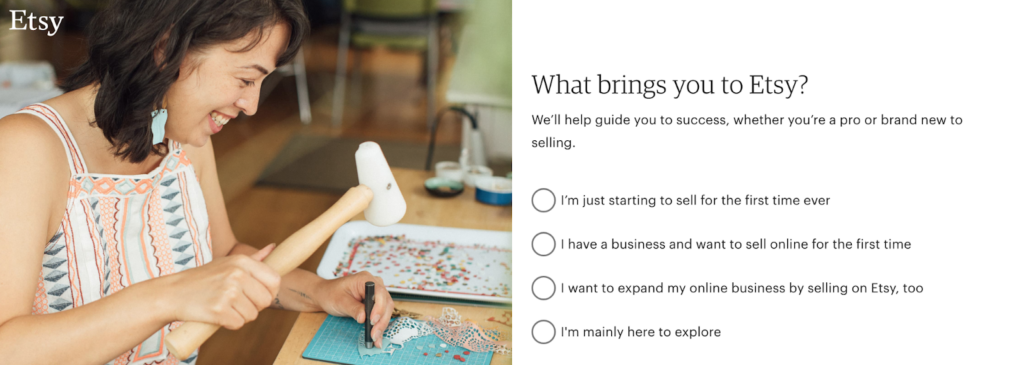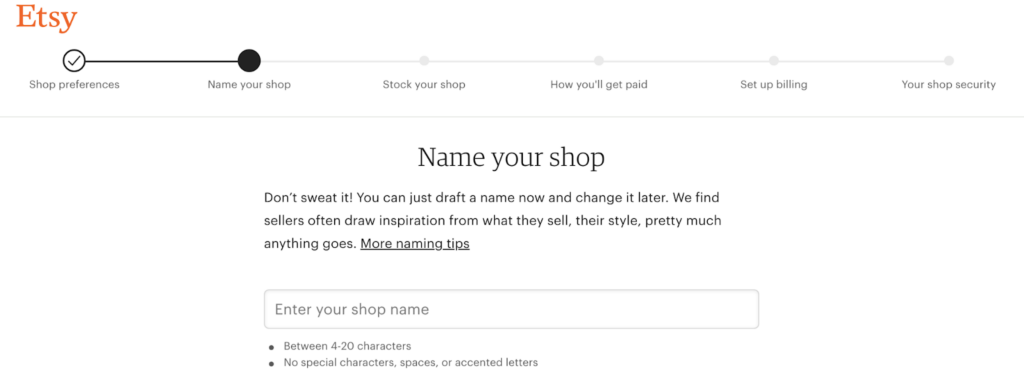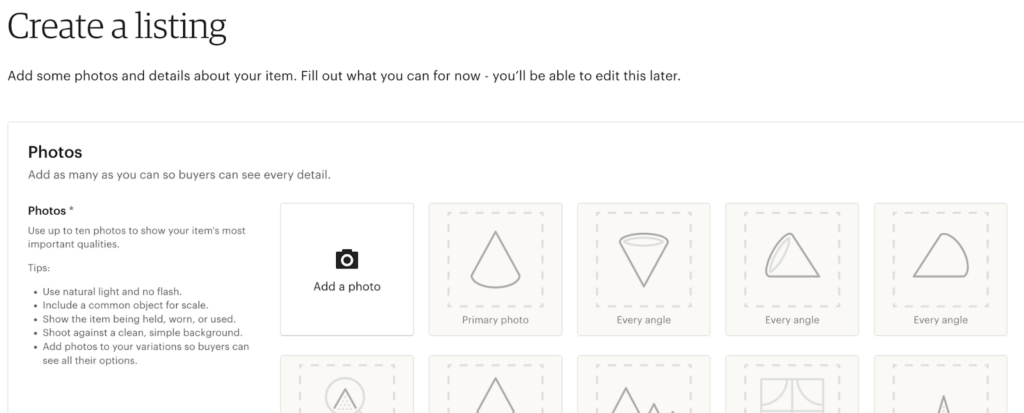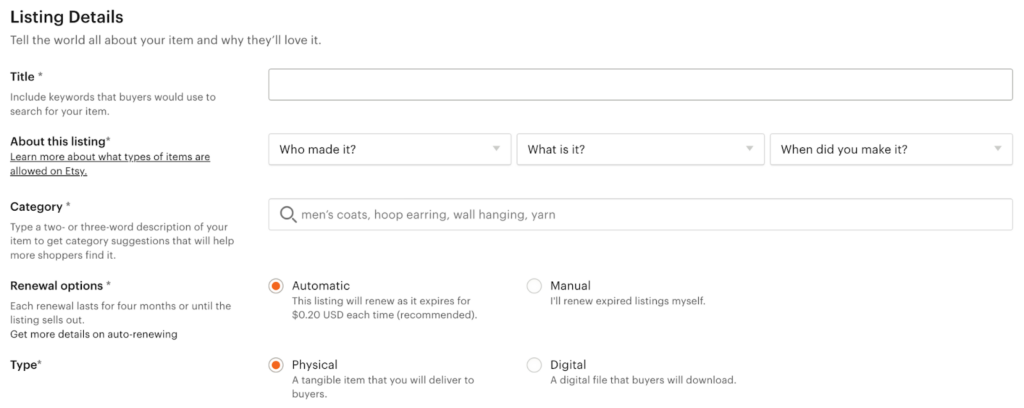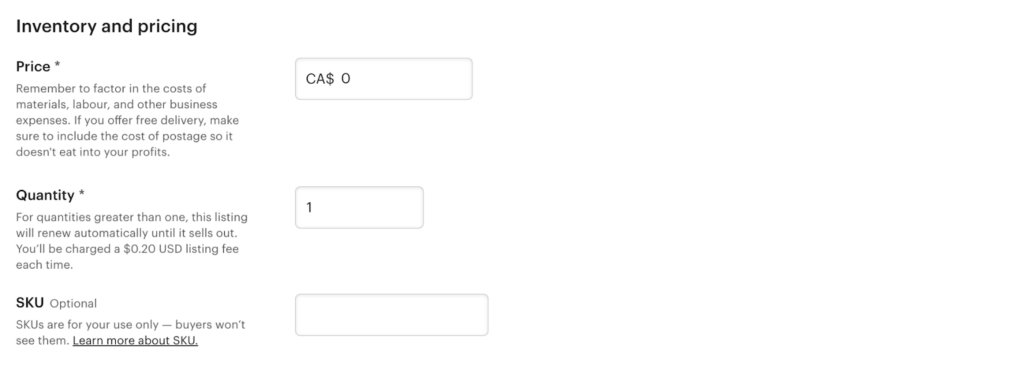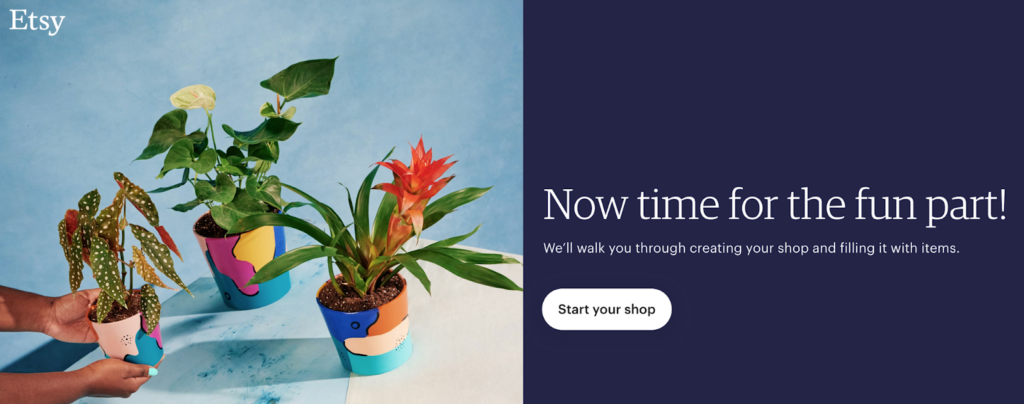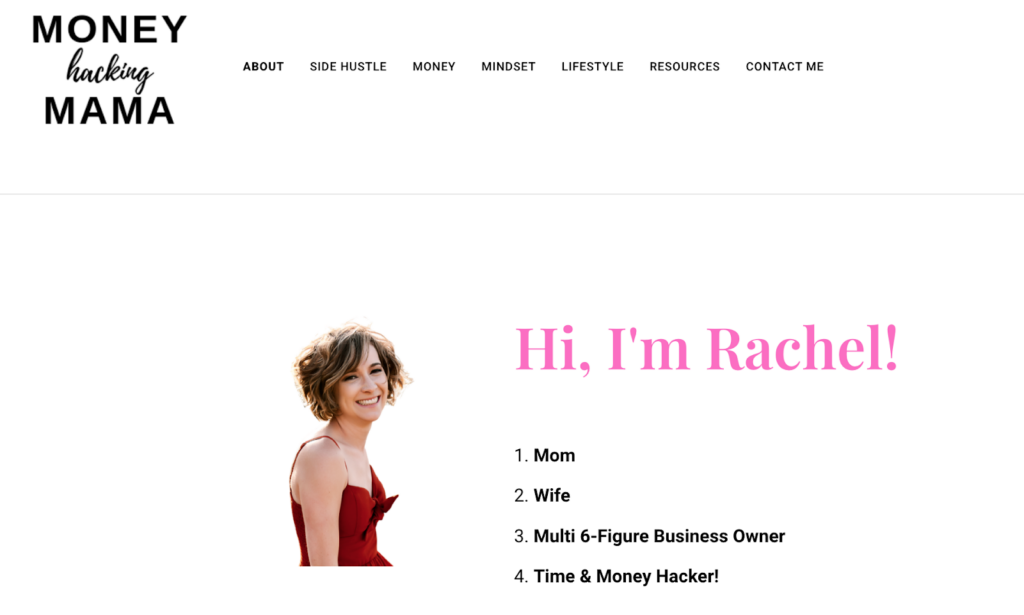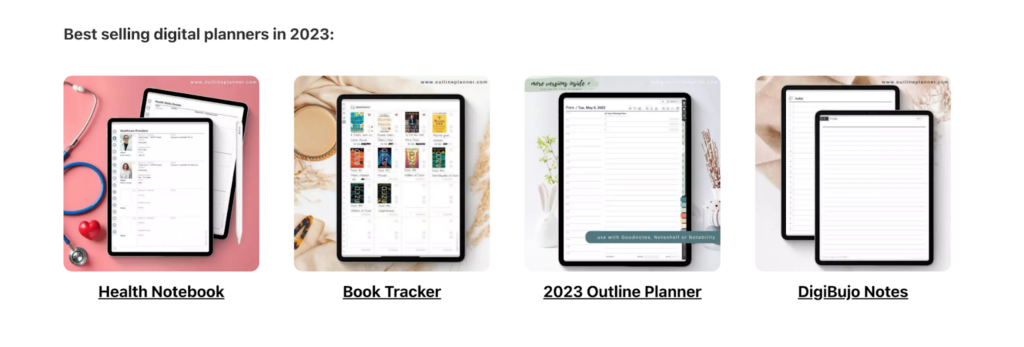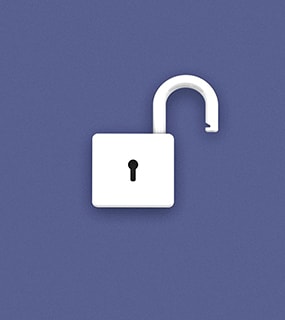Are you looking for ways to earn money while you sleep? Or while washing the dishes? Or traveling the world?
If you’re searching for a passive income stream (or even a creative outlet) to potentially make a ginormous stack of extra cash, you might want to start selling digital products on Etsy.
Whether you want to eventually replace your 9–5 job, or you’re simply looking for a side hustle that doesn’t involve trading your time for money, selling digital products on Etsy is a great way to start working for yourself and diversifying your income.
If selling digital products on Etsy sparks your curiosity, read through this comprehensive guide to discover everything you need to know to get started with selling digital products through your own Etsy shop.
Here’s what we’ll cover:
- What are digital products on Etsy?
- Understanding the market for digital products on Etsy
- Setting up your Etsy shop for digital products
- Best practices for selling digital products on Etsy
- Growing your digital product business on Etsy
- Common challenges in selling digital products on Etsy
- Case studies: successful sellers of digital products on Etsy
- Conclusion
Related: 21 Profitable Digital Products And Where To Sell Them
What are digital products on Etsy?
Digital products are any virtual item that can be downloaded instantly after purchasing the product. They are intangible, in the sense that you can’t touch them.
There are many good reasons why you should consider selling digital products online:
- Low investment and potentially high returns
- Digital products can have higher margins than physical products
- No inventory, shipping, or rent
- Automated delivery for passive income
- Serve a niche area at scale
The range of digital products you could sell online is huge — from unique printable artwork, or delicately crafted invitations, to resume templates, recipe cards, one-of-a-kind planners, or even custom fonts or themes — there’s no limit to what you could sell in a digital format.
Selling digital products online is a fantastic way to get in touch with your creative side and entrepreneurial spirit… all while earning some extra spending money.
Although venturing into the world of small business may seem overwhelming, the e-commerce company Etsy has streamlined the process of creating, marketing, and selling digital products — so it couldn’t be more straightforward!
Why Etsy is a great platform for selling digital products
You have most likely heard of (and even shopped at) the global online marketplace Etsy, where creators can sell their unique handmade, vintage, or custom products for anyone to purchase.
Etsy is a great place to start selling digital products for a few reasons:
- Etsy already has a huge user base, so if you choose and market your products well, the sky’s the limit
- Etsy only takes a small percentage from each sale, so it’s relatively cheap
- Etsy has an option for an unbranded online store called Pattern, which allows you to build a website as unique as your brand
- Etsy can automatically send made-to-order files to customers upon purchase
In short, Esty offers a user-friendly platform that gives creators the visual tools needed to sell aesthetically-pleasing digital products that fit any niche.
Understanding the market for digital products on Etsy
Etsy is a marketplace that has an insanely active user base — statistics show that there are more than 95 million active buyers on Etsy in 2023.
This is one of the perks of choosing to sell your digital products on Etsy: there’s an devoted and established audience of trusted customers ready to make purchases in any niche area.
Etsy is the home of crafters and DIYers, making it the perfect place to start selling any kind of unique digital product.
Here are some examples of the most popular digital products that are sold on Etsy:
- Planners
- Checklists
- Worksheets
- Templates (social media, resume, website, excel budgets)
- Digital stickers (cosmetic labels)
- Printable cards (wedding, restaurant, events)
- Coloring sheets
- Cards (thank-you, business, birthday, recipe, invitations)
- Journals
- Learning materials for children
- Sewing patterns
- Photo-editing presets
- Phone wallpapers/widgets
Whether you’re exploring your creative abilities or you already know which product you want to sell, one of the biggest things to keep in mind is your target audience.
You want to make sure that your niche area has a demand — otherwise you may find yourself with a digital product shop with no sales or passive income… The key to really succeeding with your Etsy shop is to identify products that have a lot of demand, and then become the best at creating that product for people to purchase.
Setting up your Etsy shop for digital products
Now that you’ve learned about the Etsy market and perhaps thought about what you might sell, let’s show you how to get started setting up your very own Etsy shop!
Setting up your Etsy shop is fairly straightforward with their user-friendly site. To create your Etsy shop, follow these simple steps:
First, head to ‘Sell on Etsy’ at the bottom of the Etsy website for your country, and follow the prompts to create a seller account.
After that, Etsy will prompt you to choose a name for your shop. Don’t worry if you aren’t totally sure what you want to name it (or even what you want to sell) as you’ll be able to easily change the name later on.
The process of branding and creating a unique shop and products will develop once you’ve started selling and finding your rhythm on the site, but it’s helpful to come up with an idea in the beginning of what you want your shop to look like.
The next step will take the most time, as this is where you input pictures and descriptions of your products. Essentially you are creating a “listing” similar to one on Facebook Marketplace, which you’ve probably used before to buy or sell previously-loved items.
Once you have your digital product ready to go, you ned to upload photos or videos to bring your product to life so buyers know exactly what they’re getting when they purchase.
There’s no need to worry if you don’t have any products to list yet — you can still create your shop and edit/add products in this section later.
When setting up your shop, you get to highlight what your digital product has to offer. Make sure to include catchy titles and eye-grabbing descriptions — shoppers will initially only see the first few lines of your description, so make them count!
Targeting specific SEO keywords (more on this later) in your listings is also extremely beneficial to ensuring your shop is searchable and easy for shoppers to find.
This is also a good place to showcase the dedication that you have put into your craft, and let buyers know how your digital products and shop are unique and different from others.
The next section will allow you to set your prices per quantity and determine the method of delivery.
Selling digital products on Etsy is just like creating a listing for a physical product — except when selling a digital item, you don’t have to worry about shipping logistics.
When creating an Etsy listing for a digital product, there are two different ways you can do it — as an instant download or a made-to-order item. Instant downloads are sent automatically to the purchaser, while made-to-order items are those you will customize for your customer, after which Etsy will automatically send out as soon as they’re uploaded.
Easy peasy, hassle-free delivery!
The final stage in creating your Etsy shop is where you put in all of your information to determine how you will get paid (Etsy has a range of different payment options), and has all the other things needed to set up billing for your shop.
This section also covers shop security, so that all of your personal information is protected.
Best practices for selling digital products on Etsy
Now that you have your Etsy shop up and running, it’s time to learn how to generate successful returns on your wonderful creations.
These are some best practices to keep your creations in high demand and selling fast:
In some categories, Etsy can be a highly saturated market, so one strategy for success is to try selling something with high demand but relatively low competition.
But that’s not the only way to succeed. Following your passion and creating what you’re good at has the potential to pay off — prospective customers will notice the quality and details of your work.
Crafting high-quality digital products will help you stand out, especially if the market you are selling in is very competitive.
A great tool for creating eye-catching, highly in-demand digital designs is Canva. This graphic design platform offers both free and paid options for creating digital art and designs.
Canva has a wide selection of customizable templates that are perfect for creating your own unique digital products to sell on Etsy.
If creating designs just isn’t for you (which is totally okay) but you still want to sell unique digital products on Etsy, you can always hire a designer to help bring your visions to life. Places like UpWork or Fiverr allow you to seek out freelancers to help with anything you might need when creating digital products.
Take a look at the market for your digital product and find out what your competitors are doing. Discovering ways to stand out from the competition can help give you ideas on how to make your product more unique and level up your business.
Growing your digital product business on Etsy
Once you’ve established your product and shop, there are a few ways you can grow your digital creation business. If you follow these tips, you should be able to get that passive income rolling in!
Etsy is a huge platform with millions of sellers — in the year 2022, approximately 7.47 million sellers sold goods through the platform — which is why building a strong brand identity is essential for success on Etsy.
Having a strong brand identity means that you’ll be more memorable to your customers, which will lead to more sales, more repeat customers, and more great reviews.
Brand identity is about showcasing your own personality and values through the products you’re selling.
Some ideas of how to create a solid brand identity include thinking about your five Ps: your Purpose, Perception, Personality, Position, and the Promotion of your business.
For help implementing this strategy for crafting a great brand identity, you can download and use our free Brand Strategy Template here.
Expanding your digital product line is a great way to draw in new customers and keep people coming back to your shop. Creating new digital products on Etsy can also help widen your target audience, making your shop more discoverable.
The great thing about selling digital products is that once you’ve created something, that’s all you have to do! You can then sit back and watch your creation get sold over and over again without lifting a finger.
It’s beneficial for your business for you to track and keep an eye on sales and search data.
Search analytics let you know how your shop is doing by giving you insight into how shoppers are finding your items, which tags on your listings are popular, and the amount of traffic your product listings are bringing in from search results. This is key information for helping your business thrive.
Etsy has some very helpful tips in their Seller Handbook for understanding your sales data and search analytics.
Having a solid marketing plan is critical for growing your shop on Etsy. Since the platform naturally generates large amounts of traffic and has millions of sellers, you will have to put in a little bit of effort to ensure that your shop is actually visible to your target customers.
Here are a few effective marketing strategies:
- Post about your shop on social media accounts (e.g. Instagram and TikTok)
- Start branded social media accounts for your business (have a professional-looking business Instagram account and create TikTok videos with your products to help discoverability)
- Create an email list to let subscribers in on product updates and new product launches
- Start a business Pinterest account to help promote your Etsy shop
- Create a website using Pattern, which lets you design and launch a separate, non-Etsy branded website (you will still have your original Etsy shop, it just automatically syncs with your Pattern site)
It is very useful to learn the basics of search engine optimization (SEO), which is essentially making your site more search engine-friendly. Targeting frequently searched keywords in your product titles and descriptions will help your Etsy shop become more discoverable (and ultimately more profitable).
Evolving and adjusting your search optimization strategy may help you stay ahead of trends and amplify the volume of your Etsy search traffic.
Common challenges in selling digital products on Etsy
Setting up your own shop on Etsy has many potential financial advantages… but that doesn’t mean there won’t be any bumps in the road along the way!
As with any business, there are a few things to be cautious of:
Etsy has strict copyright infringement policies to protect people’s intellectual property. If Etsy receives a report of intellectual property infringement, they are required to remove the specified content (including product listings).
So tread carefully if you think your creations may be too similar to something that’s already on the market — you’d hate to see your efforts taken down from your shop.
Since Etsy is a huge market, there’s lots of competition out there. Unfortunately, this means that you may run into copycats. Encountering work that is similar to yours can be stressful, so it’s important to learn about your rights and when to take action.
Remember you can’t control what others do around you, just stay true to yourself and your brand.
Make sure you’re aware of Etsy’s policies when starting your shop and selling digital products through the platform. It’s a good idea to always stay informed about any policies and changes that could affect your business.
Case studies: successful sellers of digital products on Etsy
Here are some case studies of people succeeding in earning a passive income from selling digital products on Etsy:
Rachel Jones: MoneyHackingMama.com
Rachel Jones is living the side hustle dream — on top of being a mom of two kids and starting out while working a full-time day job, she creates and sells downloadable printables on Etsy.
Rachel started in 2018, and transitioned fully to working for herself with her Etsy business in 2021. She mentions that a big turning point for her work was when she started using eRank to help gain traffic through keyword research and competitor analysis.
This profitable gig has allowed her to average over $10,000 a month in sales… go mama!!
Ralu Petrea: Outline Planner
It took Ralu Petrea one week to launch her bestselling paperless planner on Etsy and two years to refine it – now it’s her full-time gig. Ralu started with no followers, no business plan, and a brand name borrowed from a previous business that failed.
From November 2018 to October 2020, Ralu sold her planners exclusively through Etsy and reached over $90,000 in sales.
Simply by skilfully adapting paper planners to live on your tablet, she created a unique product in a very broad market area… proof that attention to detail and creating high-quality products can pay off.
Kayla: Amma Rose Designs
Kayla left her 9–5 job and started her Etsy shop selling business planners in 2018. With a little time and effort, Kayla was able to earn almost $100,000 solely through her Etsy shop.
The advice Kayla wants first-time Etsy sellers to know is: “The more time and effort you put towards your business in the beginning, the sooner you can kick your feet up a little.”
An important tip that Kayla preaches is to remember to listen to your customers’ questions and their concerns… it’ll help your business in the long run!
In conclusion…
Unlocking the potential of selling digital products on Etsy
Selling digital products on Etsy opens the door to new potential revenue streams.
Starting an Etsy shop selling digital products is a great way to tap into your creativity and earn some passive income, with minimal effort to keep your shop going once you’re up and running smoothly.
If you feel like this is the path for you, it’s time to get those creative gears turning and set up shop… good luck!

